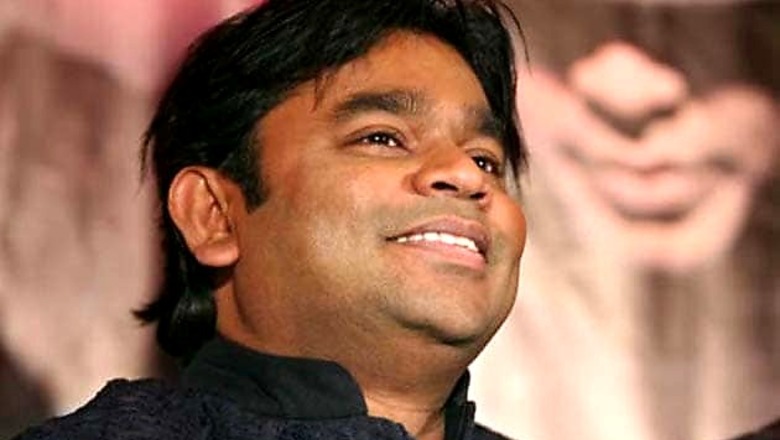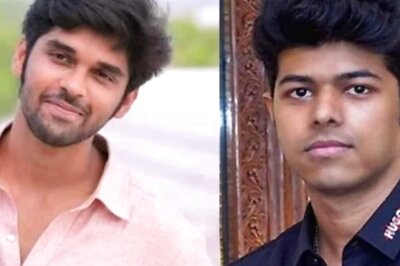
views
Kolkata: Twin Grammy and Academy Awards winner AR Rahman is a firm believer in the amalgamation of technology and talent. The maestro asserts that the Indian music industry is reaping the benefits of digitisation, contrary to the notion that technology has negative effects.
Set to enthrall audiences in Kolkata - the first city on his month-long 'Rahmanishq' tour that begins Tuesday - Rahman is in favour of digitisation sweeping the music industry. He asserts that it has not only made music of all forms accessible to listeners but has also simplified the process of making music for composers.
"Hordes of music purists love to spend endless hours going on and on about how the age of digital music has completely ruined the art form, and that real music only exists in small, underground scenes," Rahman told IANS in an e-mail interview.
"However, the reality stands that thanks to these technological breakthroughs, for both the music fan and the music maker, the creative process and the act of listening to music are now easier, less constrained and more accessible than ever before," Rahman noted.
"We are living in a society that is dominated by the digital age. So it is a natural progression that almost every element beautifully syncs together. We need to move beyond album covers," he observed.
Touring through Kolkata, Visakhapatnam, Jaipur and Ahmedabad from Oct 1 to 27, 'Rahmanishq' will give fans a chance to experience Rahman at his best - musically and technologically. A blend of hits spanning two decades will be belted out to spectators during a three-hour format.
"The concert capitalises on innovative never-seen-before technology, so that the audience can be overwhelmed with such knowhow at every stage of the concert...for an audience that will range from teenagers to senior citizens. The music is a reflection of two different generations," said Rahman.
Moreover, each city will have something different to look forward to from the versatile artist.
"For Jaipur, I will bring in an element that highlights royalty..for Ahmedabad I will bring in an element that highlights folk dance..for Kolkata I will bring an element that highlights literature and for Vizag, I will bring in an element that highlights mythology."
At ease on the stage as well as in the recording studio, the Padma Bhushan recipient noted that in India, there is a 'considerable gap' that needs to be bridged to be at par with the global live-act scene.
Banking on the 'professional channelisation' of the enormous talent pool in the country, Rahman envisaged an independent music industry like the film industry. He reckoned film music 'is going to be one of the biggest industries in the world.'
"In India, we have a pool of talent which requires professional channelisation to make this industry as colossal and independent as the film industry. While India has singers in every street, many of them performing the Carnatic, or classical Indian music variety, the future lies in Indian cinema."
In praise of youngsters making it big in the industry, the prolific composer, however, was wary of the 'congestion' that has crept in.
"It's great to see many young guns taking the lead and creating music that was unknown at one point of time. There's enough room for all," said Rahman, who insists on singers having a distinct identity.
He said: "So with changing lifestyle, music is also revolutionising to connect with the audience. I feel there's congestion. Just anybody can sing and it's done just like a fad rather than with dedication. Songs don't have an identity and you feel who just sang that song? He sounds like someone else."
Loved by audiences for juxtaposing different musical styles, Rahman, who became the first Indian to win the Golden Globe Award in 2009 - for best original musical score in Danny Boyle's movie 'Slumdog Millionaire' - prefers to treat music as a collaboration between Indian and western styles, instead of distinct entities.
"There's nothing controversial in merging two musical styles as long as it is appealing to the ears. Music for me is a merger of styles from two different worlds, East and West, and not as separate classifications. In fact, I would like to look at Hollywood and Bollywood being great learning platforms, with each industry teaching me a novel chapter," he clarified.
"In India, we love melodies in the background of scenes. In the West there is a sense that soundtracks should not distract, and hence there is a greater preference for ambient sounds and plain chords. I find myself stuck between the traditional and modern styles of music."

















Comments
0 comment